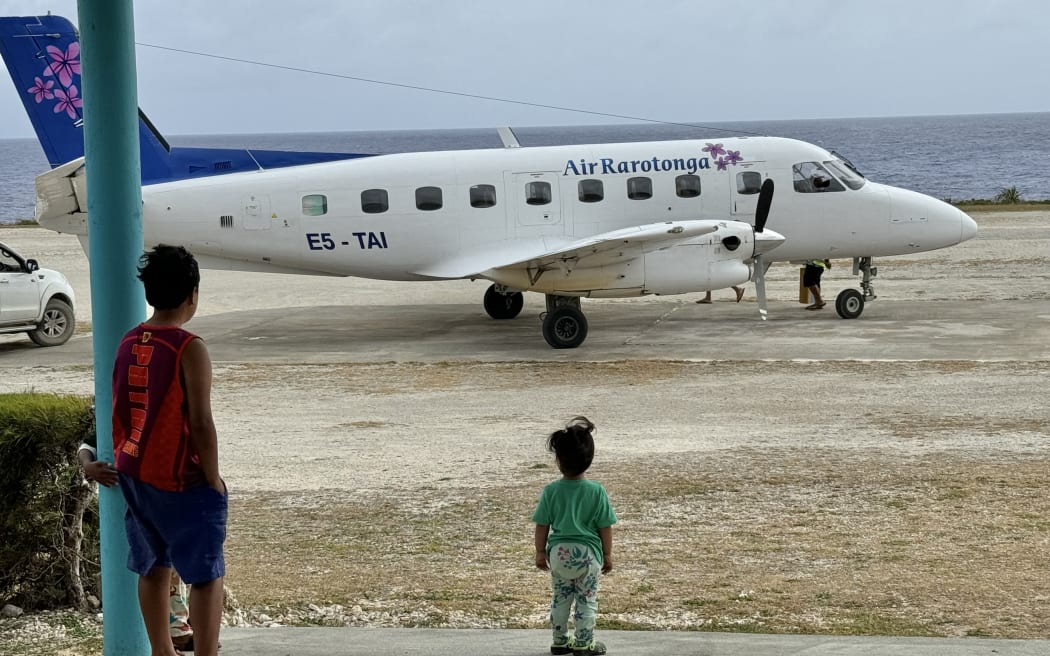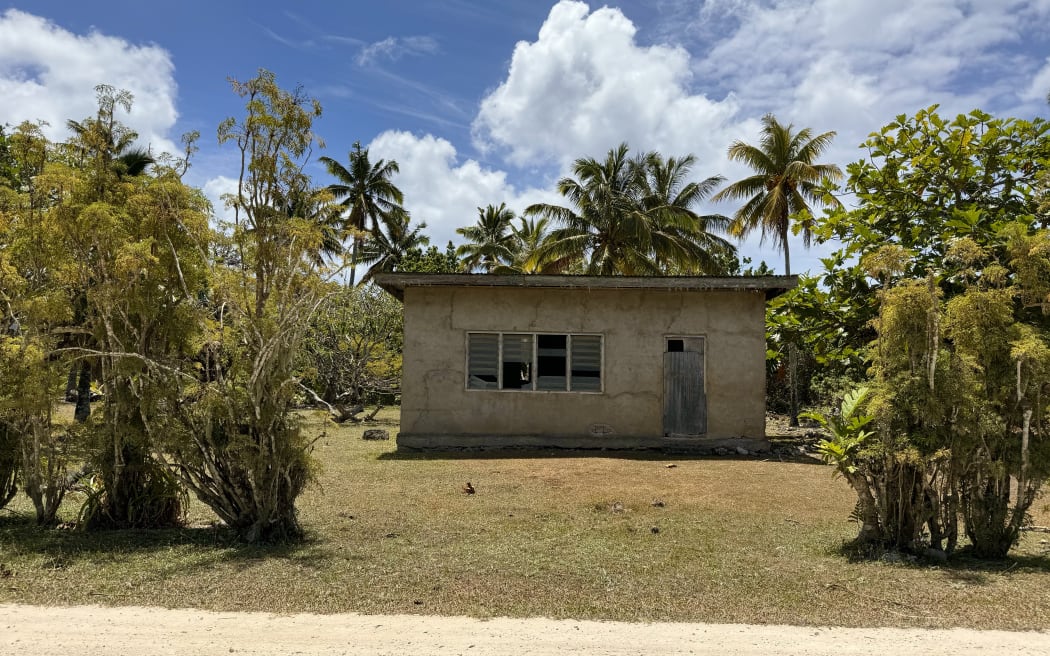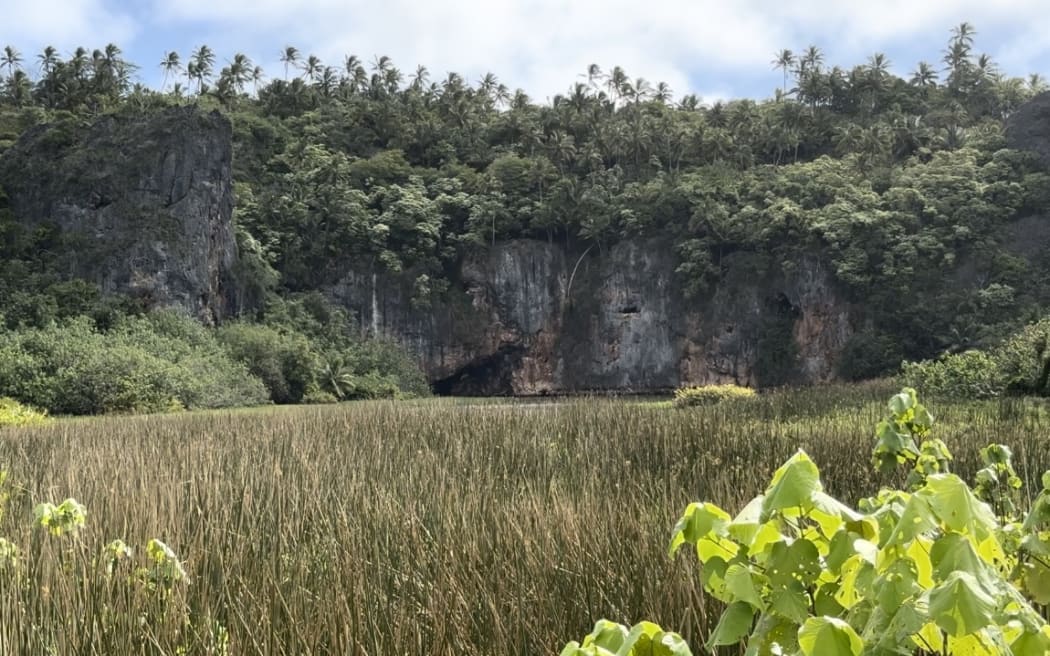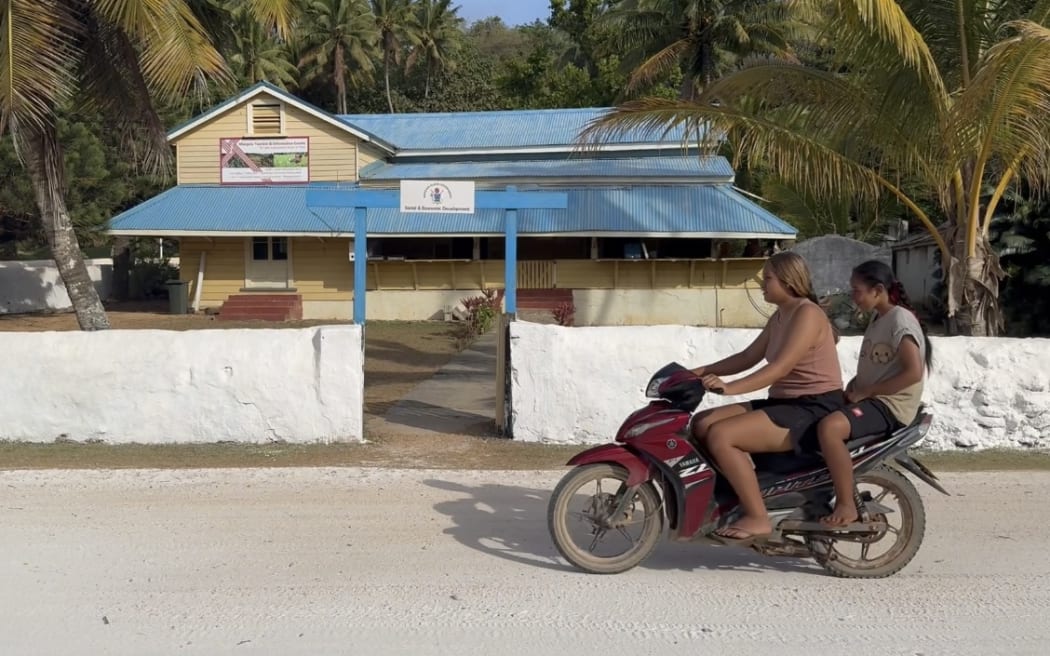Mangaia: ‘Three steps to heaven’

By Louis Collins
Feature – It’s a watershed moment for Mangaia, the southern most island in the Cook Islands group, as it celebrates two hundred years of Christianity. Its dwindling population has tripled this past week as Mangaians return home for commemorations. Before they did, some of the island’s residents and leaders spoke to Louis Collins about what the future may hold for Mangaia.
Approaching Mangaia from the air, a speck appears on the inky blue Pacific below which quickly reveals itself as a green, pear-shaped island.
This is far from your tourist cliche of palm-fringed sandy beaches.
Mangaia, for many reasons, is an island apart. At 18 million years old, geologists believe it to be the oldest island in the Pacific.
It sits on tiers of ancient reef, the largest, is known as the Makatea, and rises at one point to 60 metres. The natural feature gives the southernmost Cook island a distinctiveness that is a source of pride for its people.
In the largest village on the island, Oneroa, resident Teremoana Tangione poetically describes Mangaia’s unique geography.
“I have a new name for my island,” she says. “From the sea to the road is one step, from the road to the Makatea, that’s two steps. From the Makatea to the hill, that’s three steps. I call it ‘Three steps to heaven.'”

Teremoana is one of just over 470 people who live on the island.
She recalls when it was a lively community based on a flourishing pineapple industry before the economic decline of the 1980s and 90s forced Mangaians to seek livelihoods elsewhere.
In the last 50 years, the island’s population has plummeted by three-quarters, leaving behind deserted houses and overgrown plantations.
Driving through any of the four villages, the bones of these homes tell stories of families who have long departed for Rarotonga, Aotearoa, and Australia.

Of the tourist traffic visiting the Cook Islands, only one percent make the trip to Mangaia, and development here is limited by the island’s customary land ownership structure.
Taoi No’oroa, who works for the island administration promoting culture and tourism, says Mangaia is one of three islands in the Cooks which still retains its traditional land tenure system.
“People can’t just come over here and buy or lease land,” Mr No’oroa explains.
“The land belongs to the families, so if people want to use the land, they have to go through their families.”
Among the islands, Mangaians are often noted for their stubbornness, a trait Mr No’oroa believes is both a strength and a weakness.
“While the other islands may want to do what’s the trend of the day,” he says, “Mangaia will do the opposite and they’re well known for that.”
Above the main village, the makatea forms a natural plateau which is known locally as ‘upstairs’. There’s a cluster of houses, a hospital, church and school.

Michael Papatua is the principal of Mangaia School and after several decades away from the island, observed that much of the younger generation had lost practical cultural knowledge and were not speaking their reo.
He attributes this partly to technology, which has made English more prevalent. However, with the help of island elders, the school is determined to revive traditional skills and knowledge.
“First and foremost,” he explains, “we need to teach our kids the value of our culture,” he emphasizes. “When they leave the island, for them to want to come back, they have to value the place and what it is, to be Mangaian.
For Taoi Nooroa, technology is a double-edged sword. While it may contribute to the erosion of language and culture, it is also a vital tool for an isolated Pacific island.
As the island’s disaster management head, he relies on satellite forecasting to monitor weather patterns, a stark contrast to the traditional methods Cook Islanders once used to predict extreme weather.
In Oneroa village, respected weaver Teremoana Tangione says she still watches for these traditional signs. “When the banana tree curls, you can tell there’s a hurricane,” she explains.
“When the breadfruit tree bears plenty of fruit, it shows there’s a hurricane that year. And when the blackbird, the Taviki, flies in groups, you know a hurricane is coming.”
Teremoana’s ancestors would have relied on Polynesian gods for protection against hurricanes. Nowadays, that faith is placed in a Christian god. Monthly church services are held during cyclone season.
“We pray for God to take away the hurricane,” she says. “The whole island does.”

Despite the looming threat of climate change and rising sea levels, Mangaia’s unique geological formation offers some protection.
Taoi No’oroa even suggests that Mangaia could one day become a safe haven for islanders from the low lying Northern atolls and Autituki.
Next to Rarotonga, Mangaia, after all, is the second largest island in the Cook Islands. It’s an idea that has been tossed around but not at a government level.
Right now, Mangaia is experiencing a sudden but temporary influx of people to mark 200 years since the first missionaries arrived on the island.
Other islands in the group have already celebrated their bicentennials but two centuries ago, the Mangaians were initially not that welcoming to papa’a visitors with new ideas.
Taoi No’oroa considers the devout Christian faith of the Mangaian people to be entirely compatible with the growing appreciation for Mangaian traditional knowledge and legacy.
“Some people say Christianity destroyed our culture,” he reflects.
“But our conversion to Christianity was a decision made by our ancestors for a better life. We don’t disregard our past, but it gives us insight into what our future should be.”
According to the news on Radio New Zealand




